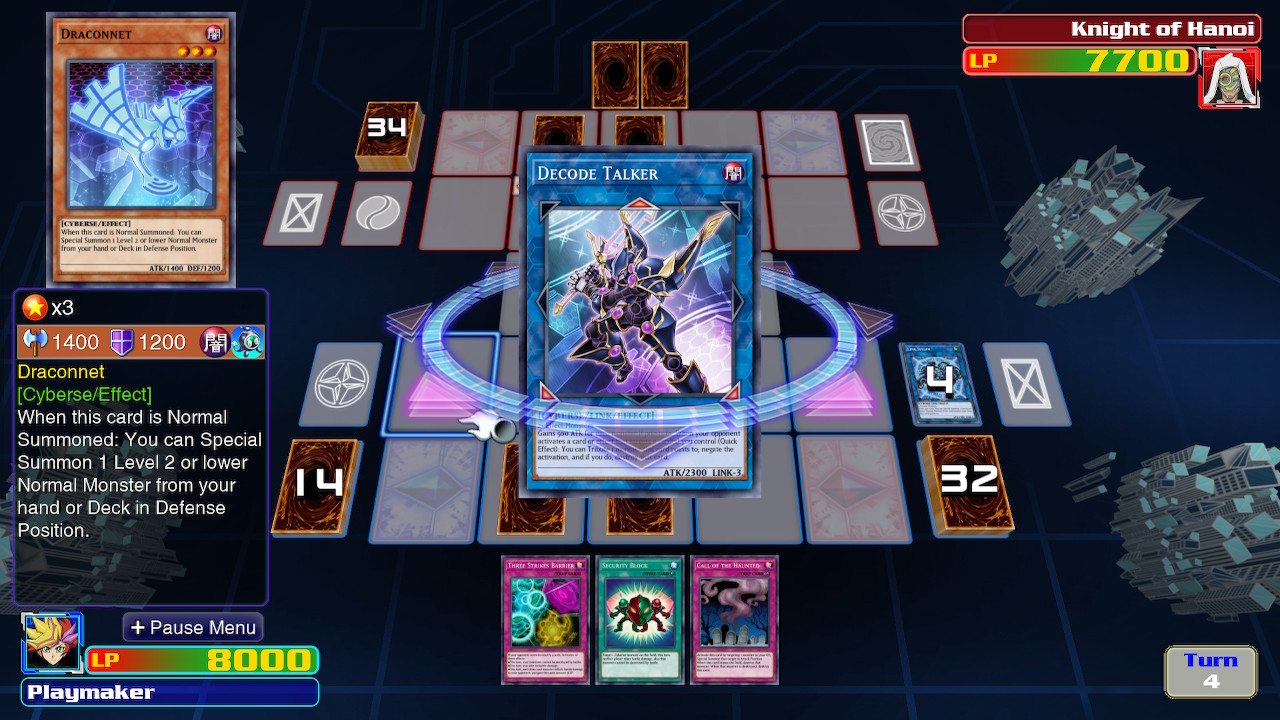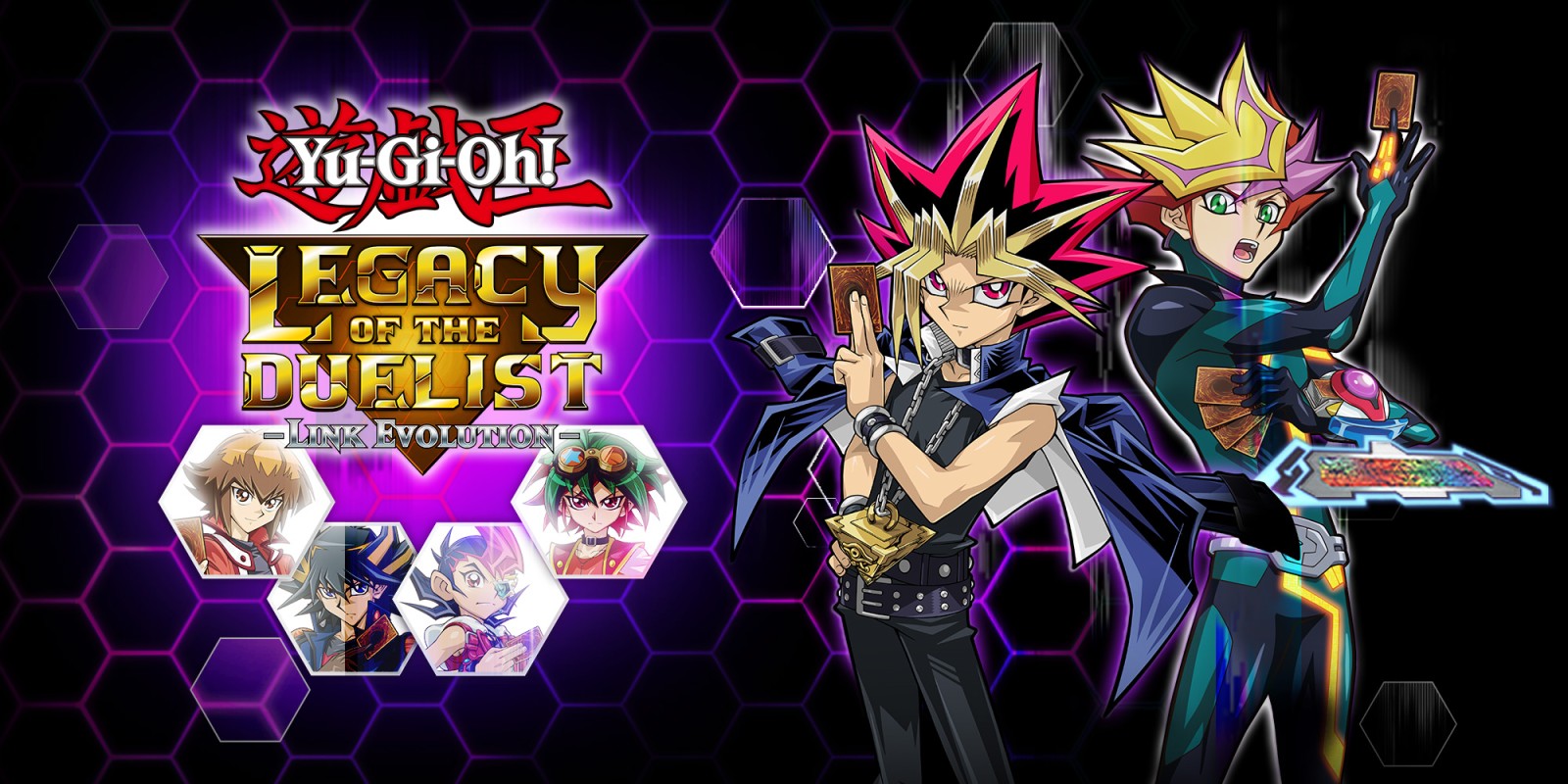Ever since I was very young, I have been an enthusiast of various CCGs. Like many of my age, my childhood revolved around various series’ imported from Japan; Pokemon, Digimon, Yugioh, Dragonball to name but a few. However, whilst my first CCG was, of course, Pokemon, I never really got that deep into playing it. I loved collecting, but the card game wasn’t really something I enjoyed.
Then came Yu-Gi-Oh. It was faster, more mature, more instant. I watched the show religiously, idealising the character of Pegasus and wanting to emulate the scenes from the anime.
Whilst my card collecting days are far behind me, I still enjoy the odd game of MtG or Yu-Gi-Oh. When the chance to review the newly released Legacy of the Duelist: Link Evolution on Switch came up, of course I snatched it up. The question however, is if the now 20-year old card game can find a home with modern audiences.
Link Evolution isn’t an entirely new game, as it’s an updated version of 2016’s PS4 and XBONE release. Including all of the DLC and the updated set of rules (more on that later), the package has an absurd level of content including full campaigns based around five of the six series’ released so far. I last seriously played the card game soon after the start of the 5Ds era, so it’s been a while, and since then there have been some big changes made to the rules; most notably within the field itself. Syncro and Pendulum summons, XYZ and Link monsters, all added since the series began…I won’t lie, I was daunted to come back. Field-wise, two new monster zones have been added to the centre exclusively for these new kinds of creatures and two of the spell/trap zones have been transformed into mixed spell/trap/pendulum zones…yeah, returning players have a lot to learn.

Luckily, Link Evolution does an excellent job of helping you to get back up to date. The career mode, which follows the main battles of the anime, introduced the new mechanics gradually through battles of increasing difficulty. Each begins with a tutorial level which explains the new mechanic for the series clearly and helps you to get a hold of the key elements.
Battles are connected by simple visual-novel-esque sections before and after duels which explain the context of the anime, but what I really love is the ability to play each level with the winning character’s deck. This requires you to quickly figure out how each one works and can lead to some amazing moments of nostalgia. Yes, you can instead use your own deck, but I always chose the standard one through my journey and loved every minute. Even better, once cleared the duel can be played in reverse, giving you the chance step into the enemy’s shoes. The only fault I can see in this mode is the lack of voice acting, but honestly it’s forgiveable considering the sheer amount of content here.
The other main mode is a series of Duelist Challenges, unlockable through the career. Every opponent you encounter has an alternative deck ready and waiting for you to fight using your own deck, usually based around a set archetype or strategy. Facing these challengers allows you to unlock their decks and cards to add to your growing collect and honestly it was really fun to face some more difficult opponents with my own home-grown deck.

Winning duels in both modes earns you currency to buy booster packs in the store, alongside various cards from the decks you have faced. Winning a duel earns you between 1000-1600 and three/four cards, but losing still earns you 600-800 and a couple of cards, meaning that every time you play you have some sort of reward. Boosters are unlocked through the career, with each series having 5/6 packs to choose from, leading to a card roster of over 9000! Most TCG cards are present here, meaning that pretty much any deck you want to build can be put together eventually. Boosters award you 8 cards at a time – picked randomly – and set you back 400 each. Whilst this set-up would be ripe for micro-transactions, Konami have been able to refrain from exploiting it and whilst it’s sad that I have to mention it I’m still pleased they were able to keep it in their pants!
As your collection widens, you can build decks through a surprisingly user-friendly interface. You can filter and search by a wide range of variables and even easily find related cards with the press of a button. I loved putting together decks both legal and not (yes, there is a banned list for online play,) and testing them out against both the CPU and other players.

Of course, there is multiplayer included in the base package, and whilst it can sometimes seem a bit slow I suppose that’s unsurprising in a game so complicated. I also noticed that in single-player, the CPU opponents sometimes took a strangely long time to decide their move, sometimes slowing to 15 seconds between actions, but thankfully this was a relatively race occurrence.
The game’s overall presentation is excellent too. Music is clear and the sound design has a lovely mix of satisfying beeps and clanks. The only quibbles I have are regarding monster animations, which seem strangely blocky compared to what you might expect. I would also have liked to have seen more animations, as they only really appear for the truly iconic creatures.
Overall, however, Yu-Gi-Oh: Legacy of the Duelist Link Evolution is a standout experience which feels just as satisfying, nostalgic and rewarding as I hoped. The refreshed mechanics have brough new life into the game and the relatively short battles make it an excellent fit for the Switch. If you have even a passing interest in card games, give this a look!








You must be logged in to post a comment.